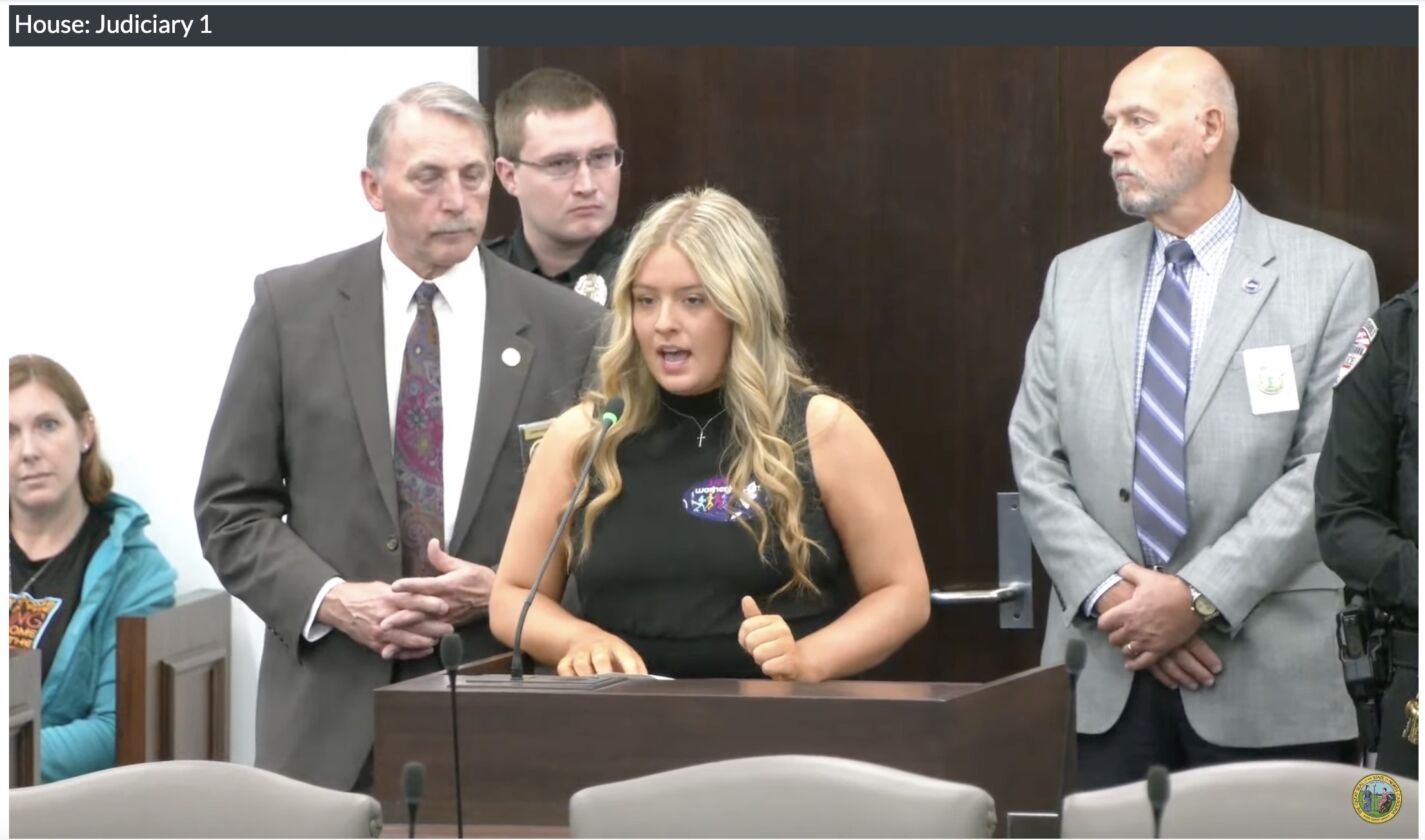Lawmakers in the North Carolina House passed H574, the Fairness in Women’s Sports Act which would prevent biological female athletes from being forced to compete against biological male transgender athletes in school sports designated for females. The bill would not prevent transgender athletes from participating on teams that are co-ed or designated for their biological sex at birth.
The bill passed the House Judiciary Committee Wednesday morning, the Rules Committee at lunchtime, and passed third reading of the full House by the end of the day Wednesday. The veto-proof vote was 73 to 39 with three Democrats voting in favor of the measure. Rep. Shelly Willingham, D-Edgecombe; Rep. Michael Wray, D-Warren; and Rep. Garland Pierce, D-Hoke, all voted for the bill.
The bill sponsors, Rep. Erin Pare, R-Wake, Rep. Kristin Baker, R-Cabarrus, Rep. Jennifer Balkcom, R-Henderson, and Rep. Karl Gillespie, R-Cherokee, invited collegiate swimmer Riley Gaines to testify on behalf of the bill Tuesday morning in committee. Gaines’ story has become national news after she tied transgender swimmer Lia Thomas in an NCAA championship race designated for women and the organization honored Thomas, a biological male, instead of Gaines.
At Tuesday’s committee hearings opponents from Equality NC urged lawmakers to reject the bill saying that it prevent transgender athletes from competing, and warning that activist outcry, similar to the state’s HB2 “bathroom bill,” could ensue.
So far this year 20 states have passed legislation protecting the rights of female athletes from facing what supporters say is an unfair competitive advantage from biologically male transgender athletes. However, the competitive advantage was not the only argument in favor of the bill.
Payton McNabb of Cherokee County, North Carolina was also there to testify to her own experience. She was critically injured in a Hiwassee High School volleyball game in which she was playing against Highlands High School. A transgender athlete on the opposing team spiked a ball into her head, knocking her unconscious, ending her season, and setting off months of pain, rehabilitation, learning challenges, and other injuries. The Cherokee County School Board vote 5 to 1 to forfeit future games against Highland out of concern for the safety of the female athlete on their teams. As a result, the forfeiting teams and athletes could not compete at state conferences and championships.
“The rest of my team was terrified because they didn’t want it to happen to them too, but the other team, the one with the transgender athlete on it, they just kinda laughed,” she said.
McNabb told Carolina Journal that the one neurologist who saw her after the injury would not treat her out of fear for the political climate that comes with her being injured by a transgender player.
“They didn’t want to be a part of it because it was so controversial,” she said.
Controversy has been following Gaines too since she became a vocal supporter of protecting women’s sports. After a speech at San Francisco State University two weeks ago, Gaines was chased and shouted down by protestors, leading her to be locked in a classroom for three hours while security found reinforcements. The video of that harrowing moments went viral on social media and led her to become even more outspoken.
While in Raleigh Wednesday, McNabb and Gaines were surrounded by Capitol Police officers as they made their way to lawmakers’ offices and committee rooms. There were activist there to oppose the bill, but generally the mood was calm.
Gaines was originally scheduled to start dental school this year, but has instead taken this opportunity to partner with the Independent Women’s Forum to educate legislatures across the country on measures to protect women’s sports. Later this week she is lobbying against the Biden Administration’s efforts to amend the Title IX laws that protect women’s sports.
Those federal amendments are aimed at blocking states from banning biologically male transgender athletes from women’s sports. The Biden administration says the new rules “govern a recipient’s adoption or application of sex-related criteria that would limit or deny a student’s eligibility to participate on a male or female athletic team consistent with their gender identity.”

In Wednesday’s hearing at the N.C. legislature, opponents of the bill urged lawmakers to wait for those Title IX amendments from the Biden administration to govern this issue. Several said that while McNabb’s injury was unfortunate, there are only fifteen or fewer transgender athletes competing in women’s sports in N.C., so the bill was “a solution in search of a problem.”
“They made me feel like I didn’t really matter because it was just me, just one person,” McNabb told Carolina Journal. “If it was going to happen to anyone on my team, I’d rather it happen to me instead of my younger cousins, or my teammates, because I guess I’m the one who could take it… the Lord let it happen to me for a reason because I feel like I should do something about it.”
The N.C. Senate has companion legislation in SB631, Fairness in Women’s Sports Act, which was reported favorably out of the Senate Rules Committee on Wednesday and is on the Senate calendar for Thursday.